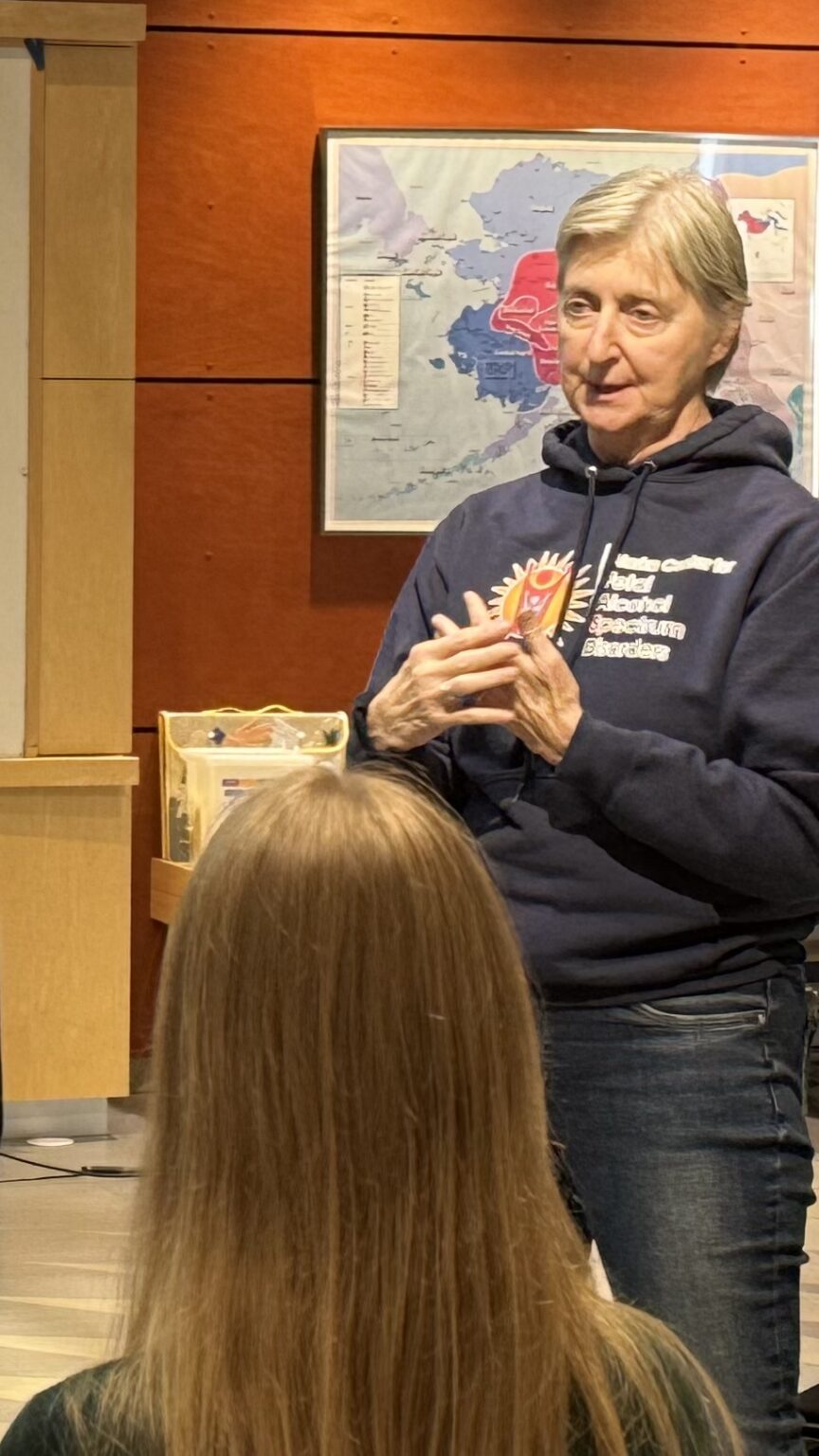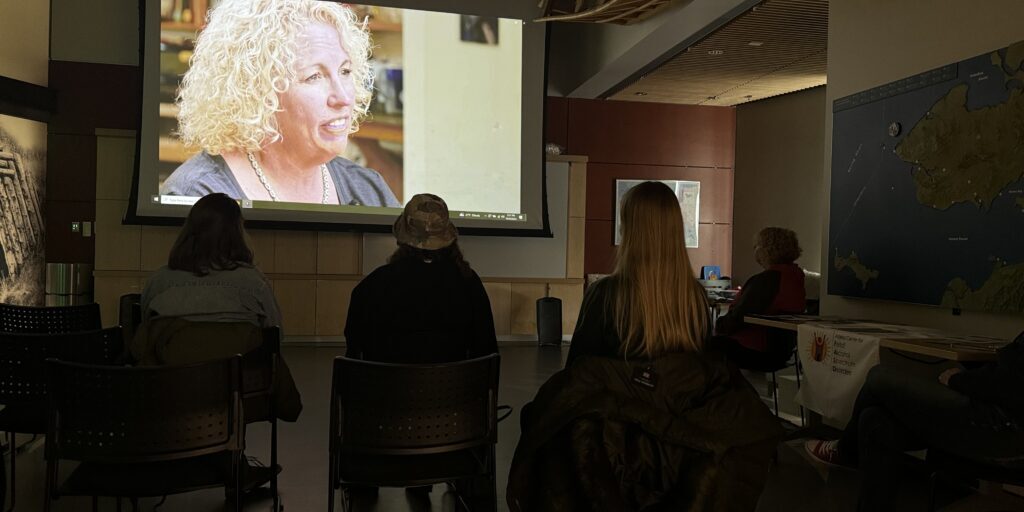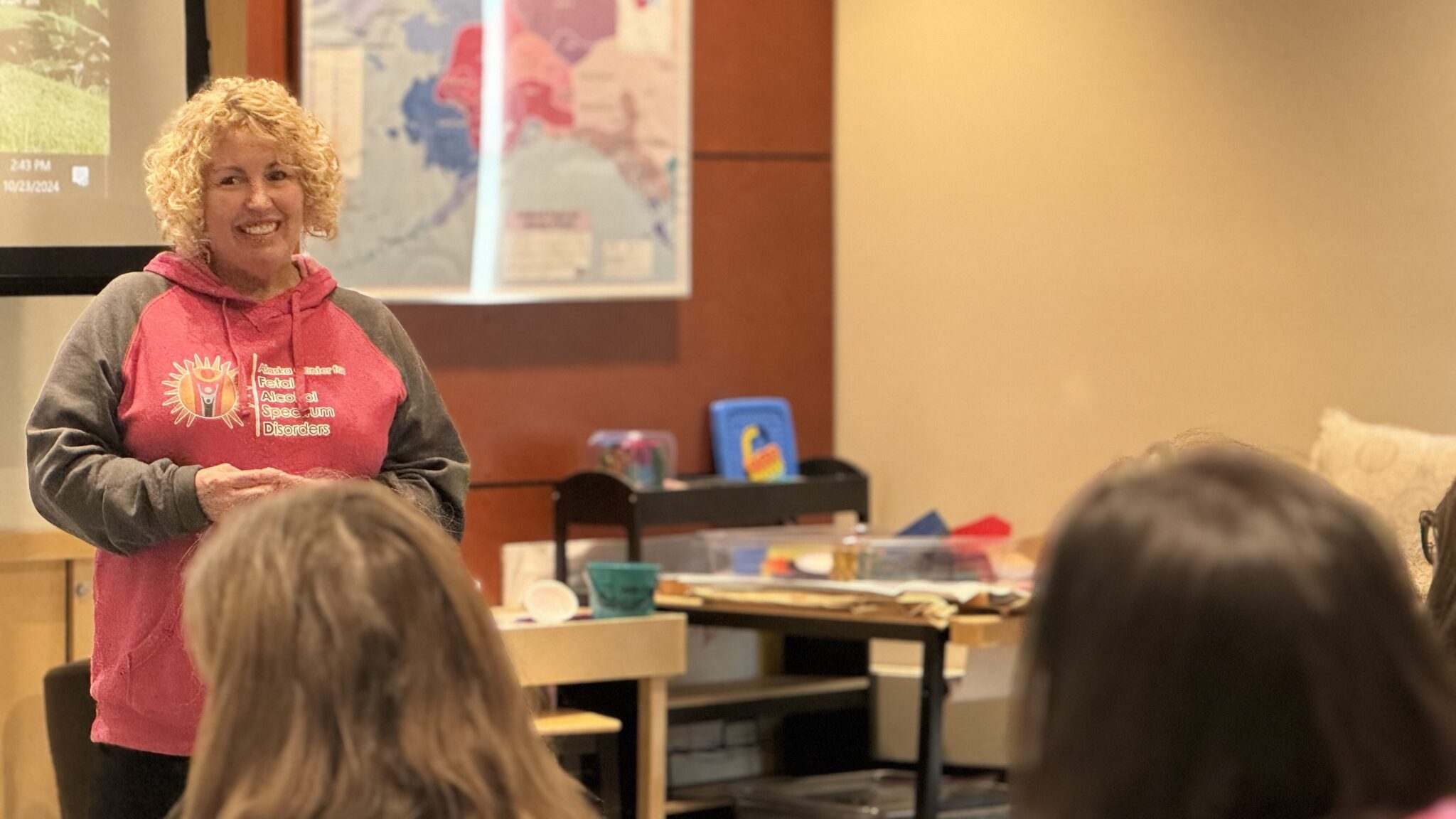Gina Schumaker always knew she was different, but it wasn’t until the age of 50 that she discovered why. Struggling with impulsivity and lifelong learning difficulties, Schumaker frequently coped with feelings of guilt and frustration surrounding her life choices and situations.
It wasn’t until Schumaker recognized similar behavioral characteristics between herself and the adopted children of her close friend that she actually might have the answer. Her life’s struggles and challenges were validated when she dove into research and staunch self-advocacy. After being evaluated by a neuropsychologist, she received the life changing diagnosis of Fetal Alcohol Spectrum Disorder (FASD).
“I thought that I couldn't have it because of the way I looked. I didn't know that it was a hidden disability,” Schumaker shared. “Only 10% of us have the facial features.”
Now at 59, Schumaker is the VP of the Board for the Alaska Center for Fetal Alcohol Spectrum Disorder. Funded by a grant from the Alaska Mental Health Trust, Schumaker traveled to Nome to present the short educational film, “8 Keys for Adults with FASD” to an audience at the Katirvik Cultural Center on October 23.
The film highlights the stories, challenges, strengths, and strategies of seven Alaskan adults who live with FASD.
“It’s strategies to help us cope. You might find people in there that you recognize in the movie because of the struggles that we have.”
- Gina Schumaker
Schumaker is one of the adults featured in the 31 minute video. Her story has resonated with audience members across the state while viewing the film. She wants to help provide understanding that FASD is a spectrum disorder where each person affected will demonstrate their own differences and abilities.
“I love that I'm spreading awareness and trying to reduce stigma surrounding FASD,” Schumaker said.
Schumaker said that FASD is more prevalent than most people may be aware of.
“It's actually all around us, it's one in 20 people. And so when you look at a classroom of children and you've got 40 kids in there, you've got at least two,” Schumaker said.
While Schumaker said receiving her diagnosis has been empowering, not everyone with FASD needs to have an official diagnosis.
“It's what you do with that information that really matters,” Schumaker said
Janice Weiss is the Executive DIrector of the Alaska Center for Fetal Alcohol Spectrum Disorders and accompanied Schumaker to the film viewing in Nome. She said many adults with FASD go undiagnosed and struggle to find the assistance they need as they navigate the challenges of daily life.
“We're considering the children and their diagnoses and what's happening with them,” Weiss said. “But sometimes the adults are left out.”
Weiss says that the film has been well-received, and shared that parents in audiences are eager to learn how they can better support their children with suspected or diagnosed FASD, especially as they prepare them for adulthood. She’s enjoyed being present at the film’s screenings, but allows Schumaker to take the lead after the viewings to share her personal experiences.
As the film becomes more widely available online, the Alaska Center for FASD hopes to continue raising awareness, reducing stigma, and empowering those affected by this often misunderstood condition.

By sharing stories and providing resources, they aim to create a more inclusive and supportive environment for parents, mothers of FASD children, and individuals with FASD throughout Alaska.
“It helps you to see more successful stories. It's not the worst thing to have FASD,” Schumacher said. “When other people see the movie, they may see themselves in it. Instead of being ashamed of that, I look at it as a way to help others grow and to give them hope.”
The final viewing of the “8 Keys for Adults with FASD” film will be held in Chickaloon this month.





